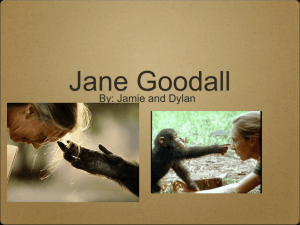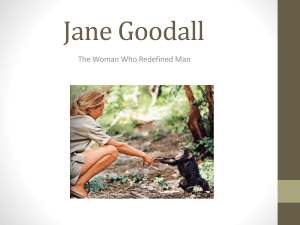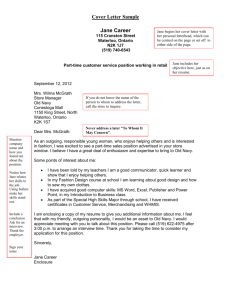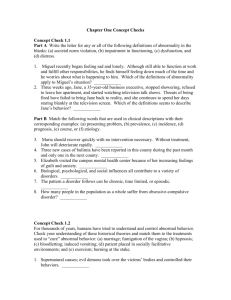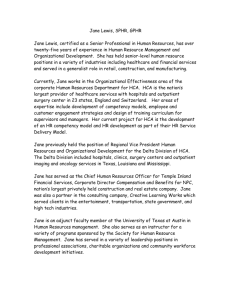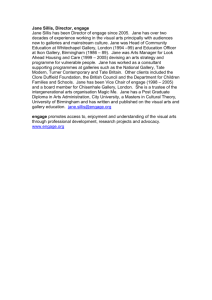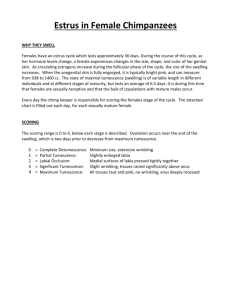Greg Dittman · Jane Goodall
advertisement
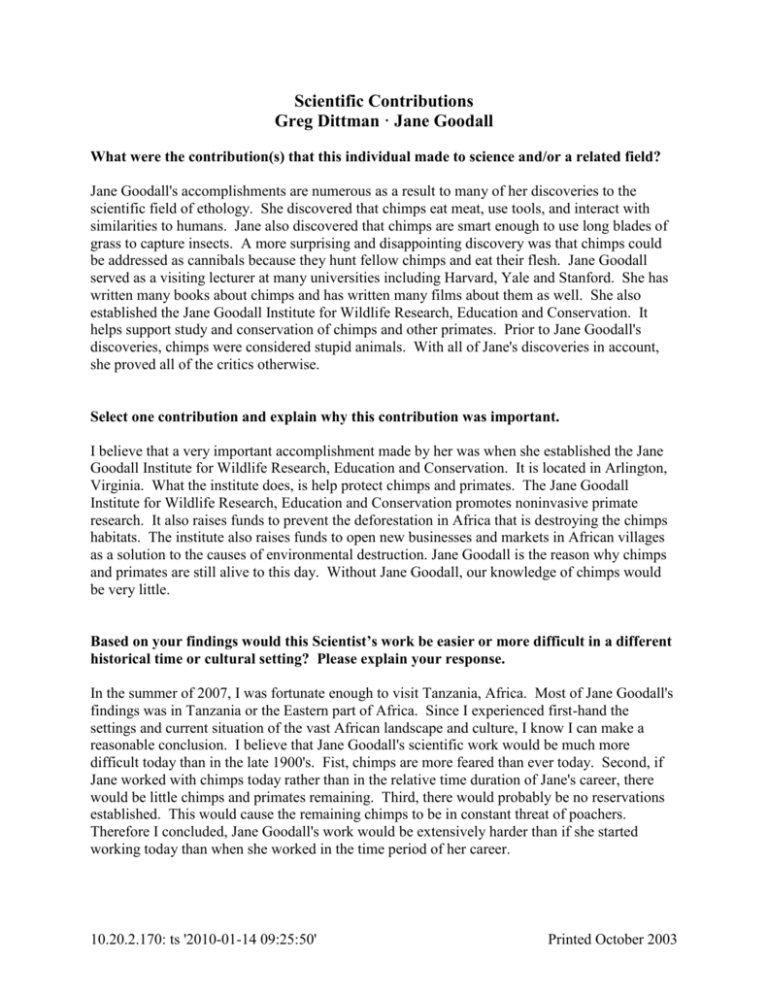
Scientific Contributions Greg Dittman · Jane Goodall What were the contribution(s) that this individual made to science and/or a related field? Jane Goodall's accomplishments are numerous as a result to many of her discoveries to the scientific field of ethology. She discovered that chimps eat meat, use tools, and interact with similarities to humans. Jane also discovered that chimps are smart enough to use long blades of grass to capture insects. A more surprising and disappointing discovery was that chimps could be addressed as cannibals because they hunt fellow chimps and eat their flesh. Jane Goodall served as a visiting lecturer at many universities including Harvard, Yale and Stanford. She has written many books about chimps and has written many films about them as well. She also established the Jane Goodall Institute for Wildlife Research, Education and Conservation. It helps support study and conservation of chimps and other primates. Prior to Jane Goodall's discoveries, chimps were considered stupid animals. With all of Jane's discoveries in account, she proved all of the critics otherwise. Select one contribution and explain why this contribution was important. I believe that a very important accomplishment made by her was when she established the Jane Goodall Institute for Wildlife Research, Education and Conservation. It is located in Arlington, Virginia. What the institute does, is help protect chimps and primates. The Jane Goodall Institute for Wildlife Research, Education and Conservation promotes noninvasive primate research. It also raises funds to prevent the deforestation in Africa that is destroying the chimps habitats. The institute also raises funds to open new businesses and markets in African villages as a solution to the causes of environmental destruction. Jane Goodall is the reason why chimps and primates are still alive to this day. Without Jane Goodall, our knowledge of chimps would be very little. Based on your findings would this Scientist’s work be easier or more difficult in a different historical time or cultural setting? Please explain your response. In the summer of 2007, I was fortunate enough to visit Tanzania, Africa. Most of Jane Goodall's findings was in Tanzania or the Eastern part of Africa. Since I experienced first-hand the settings and current situation of the vast African landscape and culture, I know I can make a reasonable conclusion. I believe that Jane Goodall's scientific work would be much more difficult today than in the late 1900's. Fist, chimps are more feared than ever today. Second, if Jane worked with chimps today rather than in the relative time duration of Jane's career, there would be little chimps and primates remaining. Third, there would probably be no reservations established. This would cause the remaining chimps to be in constant threat of poachers. Therefore I concluded, Jane Goodall's work would be extensively harder than if she started working today than when she worked in the time period of her career. 10.20.2.170: ts '2010-01-14 09:25:50' Printed October 2003
